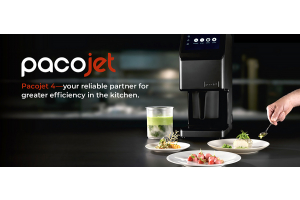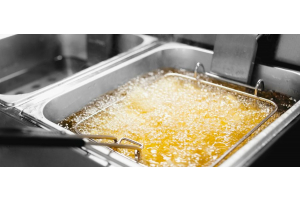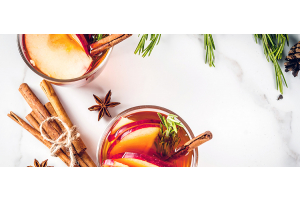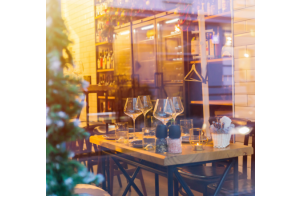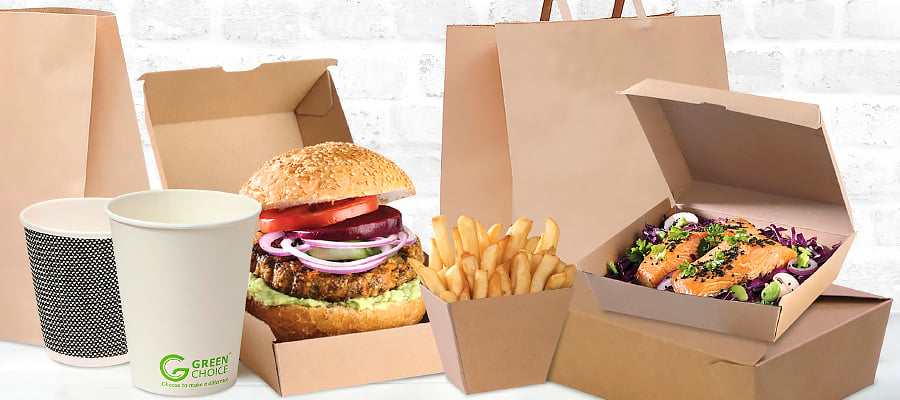
Sustainable Takeaway Packaging- have you made the switch?
Switching your catering and foodservice packaging is an easy change that can make a big difference. With the rise of the conscious consumer actively seeking out more responsible brands and sustainable packaging solutions, it’s not only good for the planet – it’s good for business.
This makes one thing abundantly clear: as businesses, finding sustainable alternatives to conventional foodservice packaging is vital to securing a waste-free future and working towards a circular economy.
Here are five simple sustainable packaging swaps you can make this year:
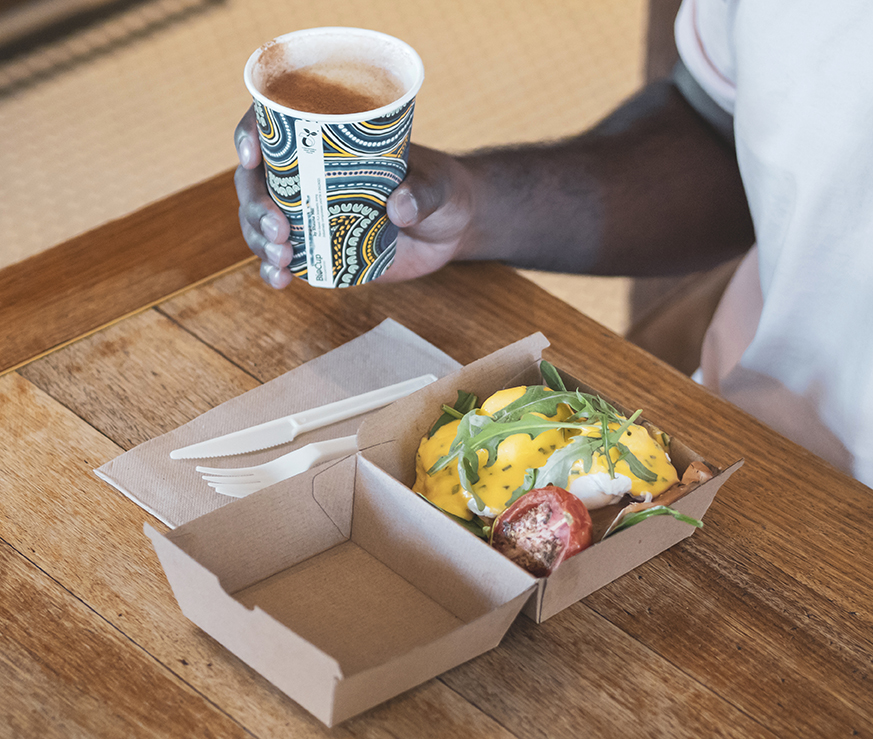
Swap 1: Plastic-lined Coffee Cups
295 million single-use coffee cups are thrown away every year in New Zealand alone (and one billion in Australia -source). Their inner plastic lining prevents them from being recycled. Which means they inevitably end up in landfill. As a business, you can swap out coffee cups lined with conventional plastic for BioCups lined with Ingeo™ plant-based bioplastic – a material that is both industrially compostable (along with the rest of the cup) and emits 75% less carbon in its production than traditional plastic.
Swap 2: Plastic Takeaway Containers
Traditional plastic takeaway containers are made from finite fossil fuel resources. They are useful for only a matter of minutes, before being disposed of into landfill and taking hundreds of years to break down. Your business can opt for BioCane takeaway containers made from bagasse (sugarcane pulp), which are compostable in 180 days, and made from reclaimed and rapidly renewable materials.
Swap 3: Polystyrene Packaging
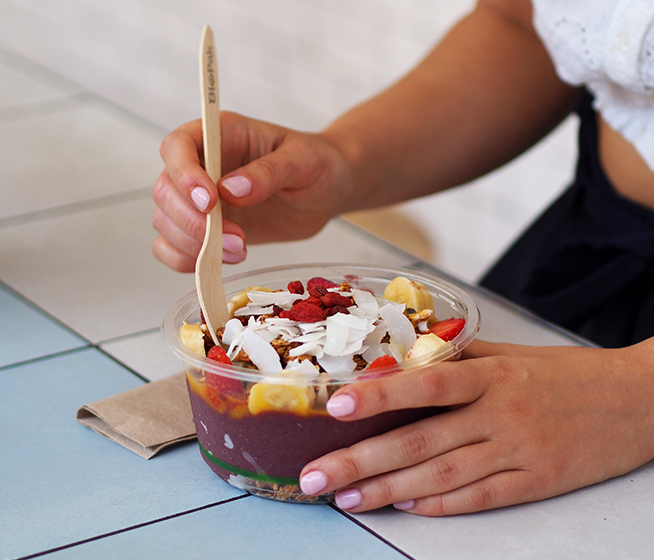
Polystyrene has long been a packaging staple in the foodservice industry. Yet, it contains toxic substances Styrene and Benzene, and is not recycled in kerbside recycling (source). You can swap out polystyrene containers for BioBoard takeaway containers, which have the same shape and function but are instead made from FSC™ certified board sourced from responsibly managed forests.
Swap 4: Plastic Straws and Cutlery
Plastic straws and cutlery alike are made from plastic derived finite fossil fuel resources, and are major contributors to ocean plastic and harm to marine wildlife. When disposed of into landfill, they take hundreds of years to break down. BioStraws and Wood BioCutlery can replace both of these – and they are made from FSC™ certified paper and birchwood sourced from responsibly managed forests.
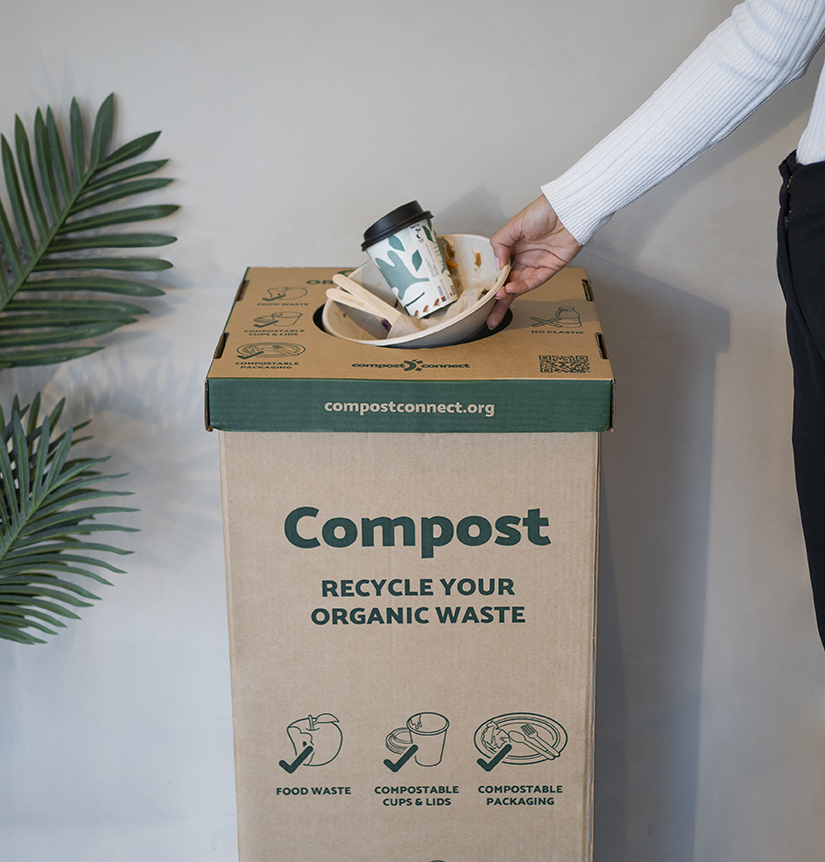
Swap 5: General Waste
Did you know that food residue makes recycling unviable for used plastic takeaways? Or that food waste is the third-largest contributor to climate change? The good news: food residue on the packaging is not a problem for composting. Collecting organic waste and compostable packaging for composting means you’ll reduce waste to landfill which, in turn, reduces your carbon footprint as the creation of methane and leachate are avoided when organics are diverted from landfill to compost. Go to compostconnect.org to find your local composter.
It’s never been easier to be a sustainable business. Making the change to compostable, sustainable packaging solutions is a smart move. It’s what consumers are increasingly demanding, and it is ultimately the right thing to do – for all our futures. And with sustainable swaps readily available, why not make the switch to BioPak packaging that puts the planet first.

